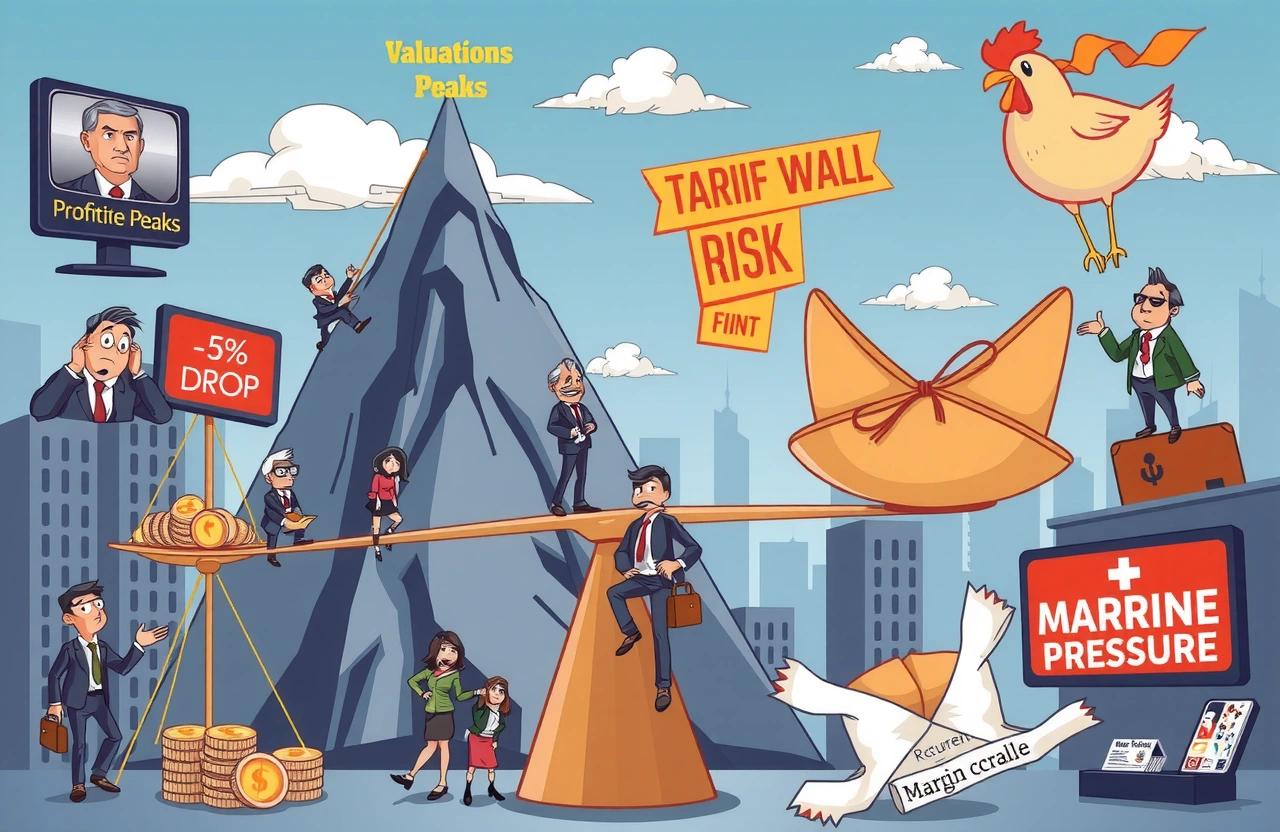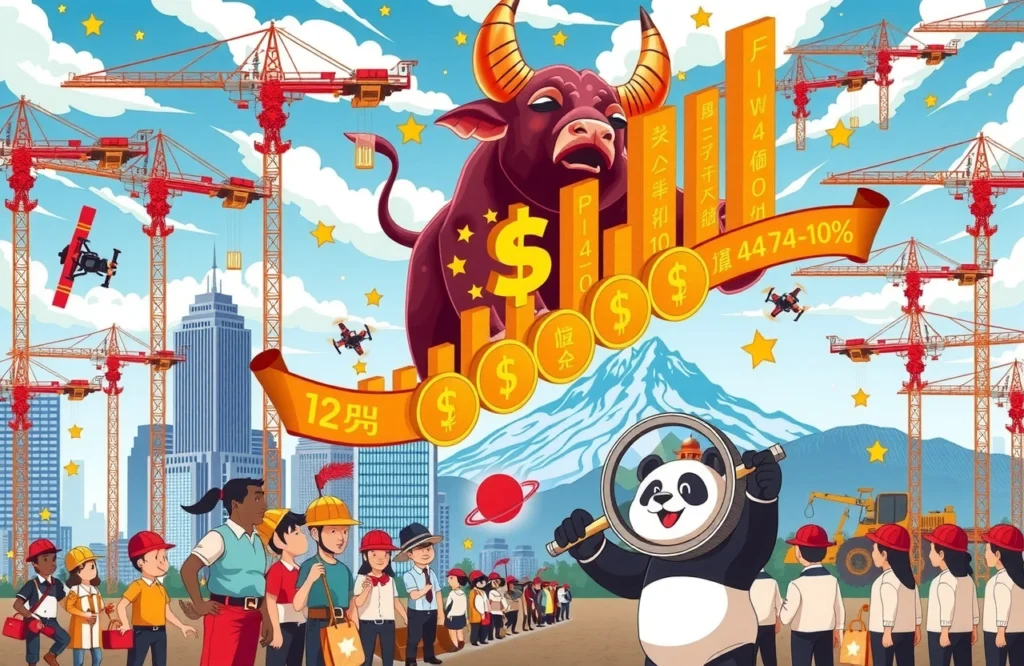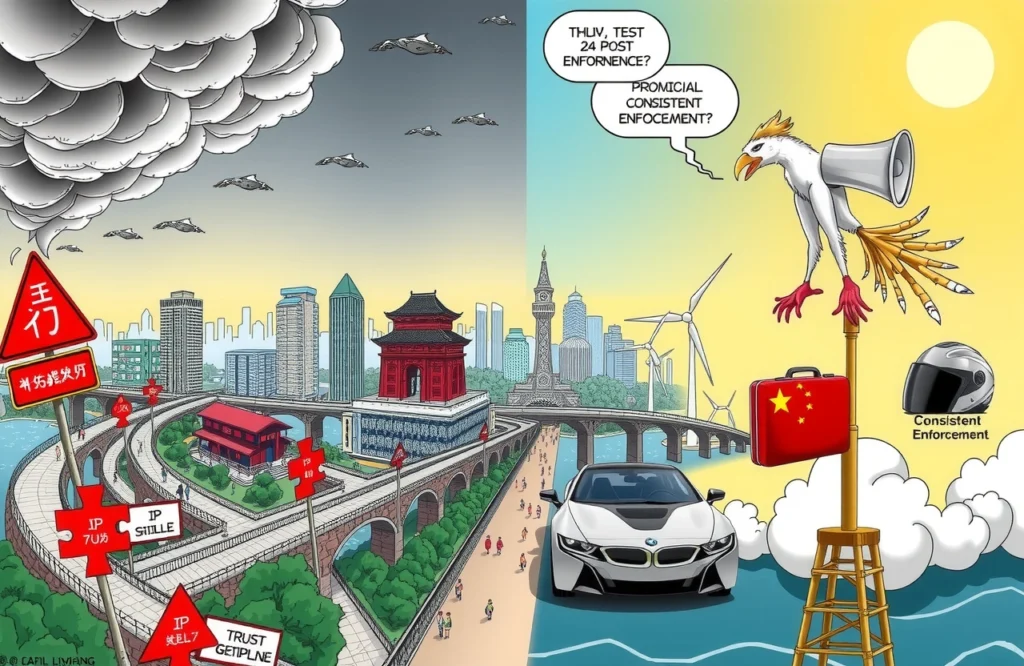The Earnings Paradox
As U.S. companies parade their quarterly results before investors, Wall Street has delivered an unsettling verdict: Performance that would previously be celebrated as ‘good’ now triggers disappointment. When Morgan Stanley reported second-quarter earnings surpassing estimates, shares initially jumped before giving up gains. Netflix stunned investors when its stock fell despite beating both profit and subscriber forecasts. This apparent disconnect reflects a fundamental tension between corporate results and what Annex Wealth Management Chief Economist Brian Jacobsen (布莱恩•雅各布森) calls the “overriding risk of valuation” – even strong performance struggles to justify today’s heightened prices. With major indices hovering near all-time highs after a historic rally, investors are demanding extraordinary results as validation.
The Valuation Dilemma
S&P 500 price-to-earnings ratios currently hover near 21.5x – significantly above the 10-year average of 17.8x according to FactSet data. This premium creates immense pressure:
- Even with 83% of companies beating earnings estimates, investor reactions remain muted
- Forward-looking guidance gets scrutinized beyond historical norms
- Profit growth appears sluggish relative to valuations
The Cost of Fundamentals
“When we look at fundamentals, they should improve,” Jacobsen notes. “But the crucial question becomes: What premium are you paying for those fundamentals?” These concerns materialized starkly when Netflix shares dropped 5% post-earnings despite revenue beats and raised projections – what William Blair analyst Ralph Schackart (拉尔夫·沙克特) termed “good, but not enough” results.
Lowered Expectations Hidden Risks
Analysts quietly trimmed projections before earnings season amid tariff and monetary policy uncertainty. Though S&P 500 companies are currently tracking toward 5.6% year-over-year earnings growth:
The Patience Problem
Brian Jacobsen observes: “I anticipate significant market volatility ahead. Companies missing targets will face harsher punishment than typical, as investors lack tolerance for disappointment.” With analysts at firms like CICC China International Capital Corporation Limited (中金公司) noting compressed margins across tariff-sensitive sectors, companies require flawless execution to maintain valuations.
Tariff Uncertainty and the TACO Trade
Investors developed an ironic coping mechanism during tariff threats – the “Trump Always Chickens Out” (TACO) narrative premised on last-minute policy reversals. But Siebert Financial Chief Investment Officer Mark Malek (马克•马雷克) cautions: “All indicators point positively now, but another shoe remains poised to drop. Tariff impacts will erode margins or force consumer price hikes – markets have priced in optimism thus far, but reality may disrupt the balance.”
Navigating Volatility Ahead
Investors face complex challenges during this high-stakes season:
- Focus on margin resilience and tariff exposure in holdings
- Prioritize companies with pricing power during inflation
- Analyze guidance revisions as closely as earnings beats
Markets reward pristine execution but penalize imperfection. With valuations approaching dot-com era levels relative to profit growth, anything less than extraordinary results could spark significant realignment. Comb through fundamentals with heightened vigilance, diversify tariff-vulnerable holdings, and anchor decisions in cash flow durability.




